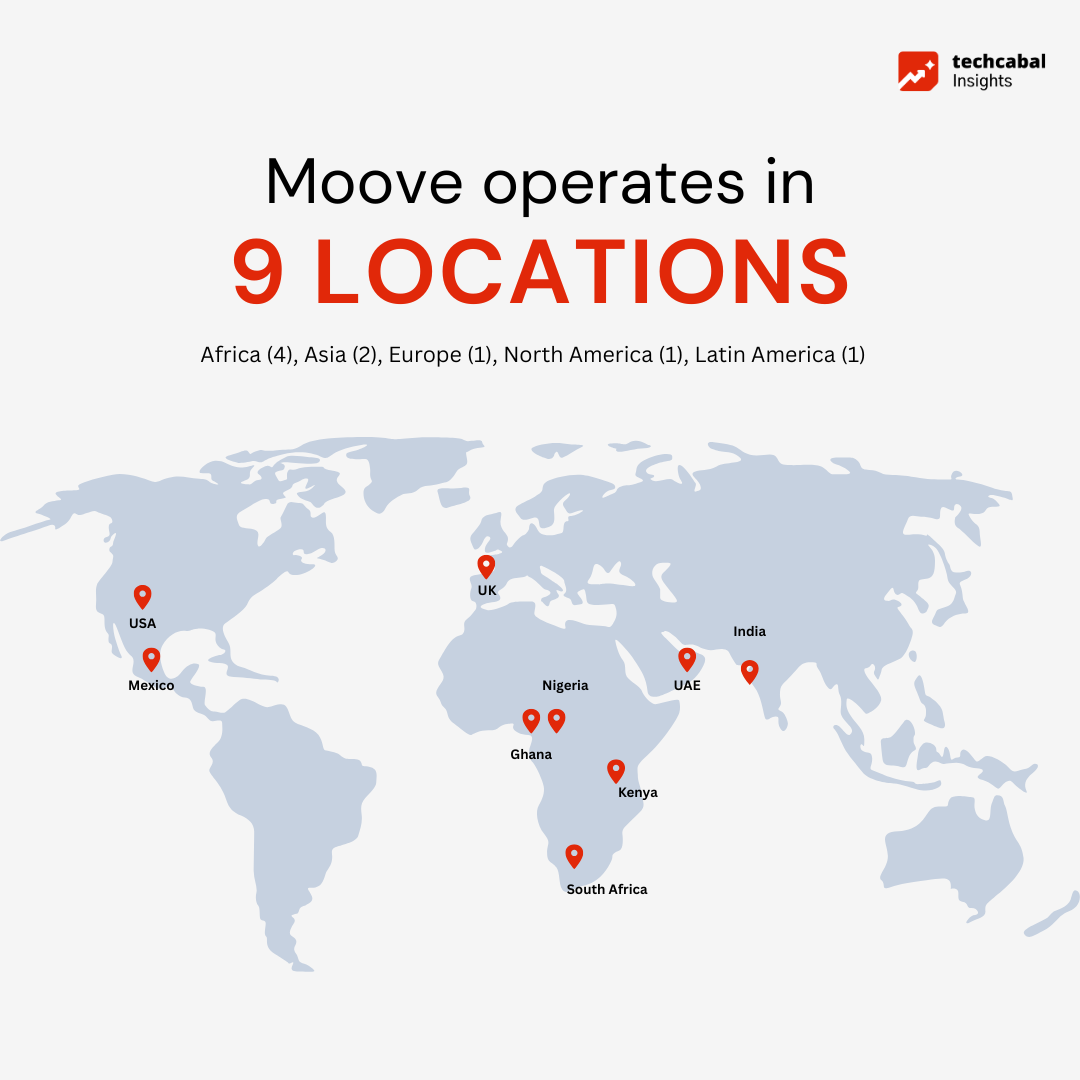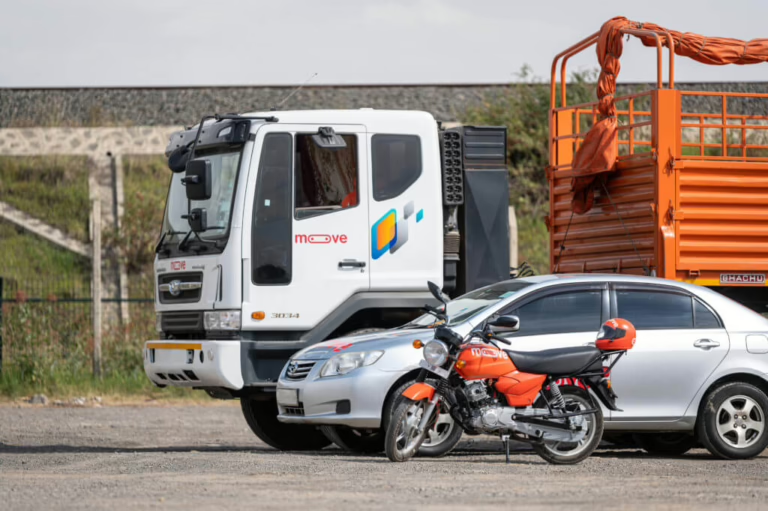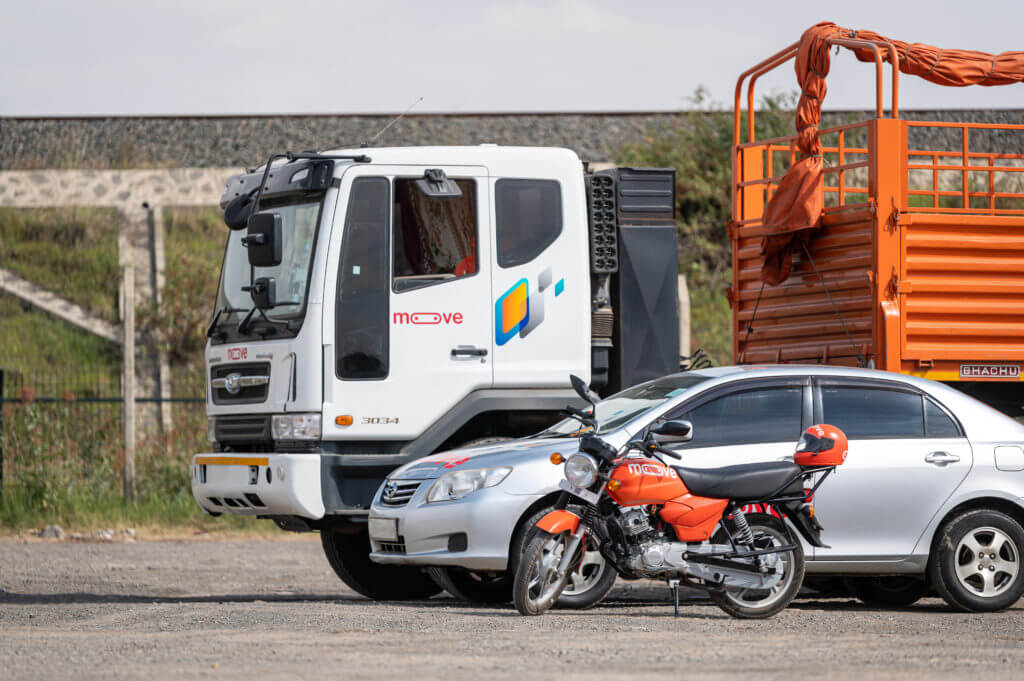Cet article est également disponible en français

Moove’s model thrives by converting drivers’ anticipated earnings into loan repayments; however, in a future dominated by autonomous vehicles, the absence of drivers challenges this approach.
Lagos-based startup Moove, which specializes in vehicle financing for ride-hailing drivers through installment plans, is reportedly in the process of securing $300 million in funding at a valuation of $2 billion. Having reached profitability as of last September, Moove now operates across more than ten countries and boasts an annual recurring revenue of approximately $400 million.
These figures are impressive.
Just two years ago, Moove’s valuation stood at $750 million with revenues around $50 million. If these numbers hold, the company’s revenue has surged nearly eightfold, while its valuation has nearly tripled. In an era where many growth-stage firms struggle to maintain their previous valuation multiples, Moove appears to be justifying its current worth.
Next Wave continues after this ad.
Investors are undoubtedly scrutinizing Moove’s unit economics – factors such as default rates, capital costs, and recovery rates on repossessed vehicles are critical in assessing the sustainability of its growth. The company has previously reported default rates below 3%, which, if accurate, are notably lower than the typical subprime auto loan default rates in the United States, which range between 3.2% and 9.8%. Such low loss rates enable Moove to recycle capital more efficiently and continue raising funds at attractive valuations.
However, the company’s latest pitch, according to Bloomberg, centers on autonomous vehicles. Moove plans to deploy a fleet powered by Waymo’s self-driving technology using the new capital.
This development can be interpreted in two distinct ways.
Next Wave continues after this ad.
On the optimistic side, Moove’s extensive data on driver repayments equips it to accurately assess risk in the mobility sector, potentially enabling it to finance costly autonomous vehicles in a capital-efficient manner. If the robotaxi market reaches the trillion-dollar scale many predict, Moove stands out as one of the few startups simultaneously building a vehicle fleet and a financing infrastructure.
Conversely, skeptics might question whether the financial dynamics of robotaxis will mirror those of traditional ride-hailing. Currently, Moove’s model depends on individual drivers managing operational expenses and sharing revenue risks. In a fully autonomous scenario, the company would likely need to own or lease fleets to corporate operators, a shift that demands significantly more capital and could compress profit margins. Investors may be wagering that Moove’s risk assessment capabilities surpass those of conventional banks or automaker finance divisions.
The more cautious viewpoint suggests Moove is essentially a subprime auto lender with strong marketing. While breaking even on EBITDA is promising, subprime lenders often appear healthy until credit losses escalate. Autonomous vehicles have yet to reach mass adoption, and Moove’s current success hinges on converting drivers’ future earnings into loan repayments – a model that may not translate to a driverless world.
Next Wave continues after this ad.
Regardless, the $2 billion valuation is the most compelling aspect. If Moove truly generates $400 million in annual recurring revenue and is profitable, a 5x revenue multiple is reasonable for a fintech-lender hybrid, and even modest compared to some U.S.-listed counterparts. The critical question remains: are investors valuing Moove for its current revenue stream or for the potential of an autonomous vehicle future?
Ultimately, Moove is either positioning itself as the structured credit backbone of mobility in key markets like Nigeria or operating as a well-managed car financing firm with a futuristic robotaxi narrative.

Moove operates in nine countries worldwide. Chart by Margaret Awojide
In any case, the $300 million funding round represents a significant wager that Moove will remain a key player in the future of global passenger transportation.
Next Wave ends after this ad.
Kenn Abuya
Senior Reporter
Thank you for reading this edition. Feel free to share your thoughts by emailing kenn[@]bigcabal.com or simply reply to this message.
We’d love to hear from you
Psst! Right here!
Thanks for reading today’s Next Wave. Please share it, or subscribe here for free to receive fresh insights on Africa’s digital innovation every Sunday.
As always, I welcome your replies and feedback – I truly enjoy reading them.
TC Daily newsletter delivers a concise briefing of essential tech and business news every weekday at 7 AM (WAT).
Follow TechCabal on Twitter, Instagram, Facebook, and LinkedIn to stay connected with real-time discussions on African tech and innovation.




































0 Comments